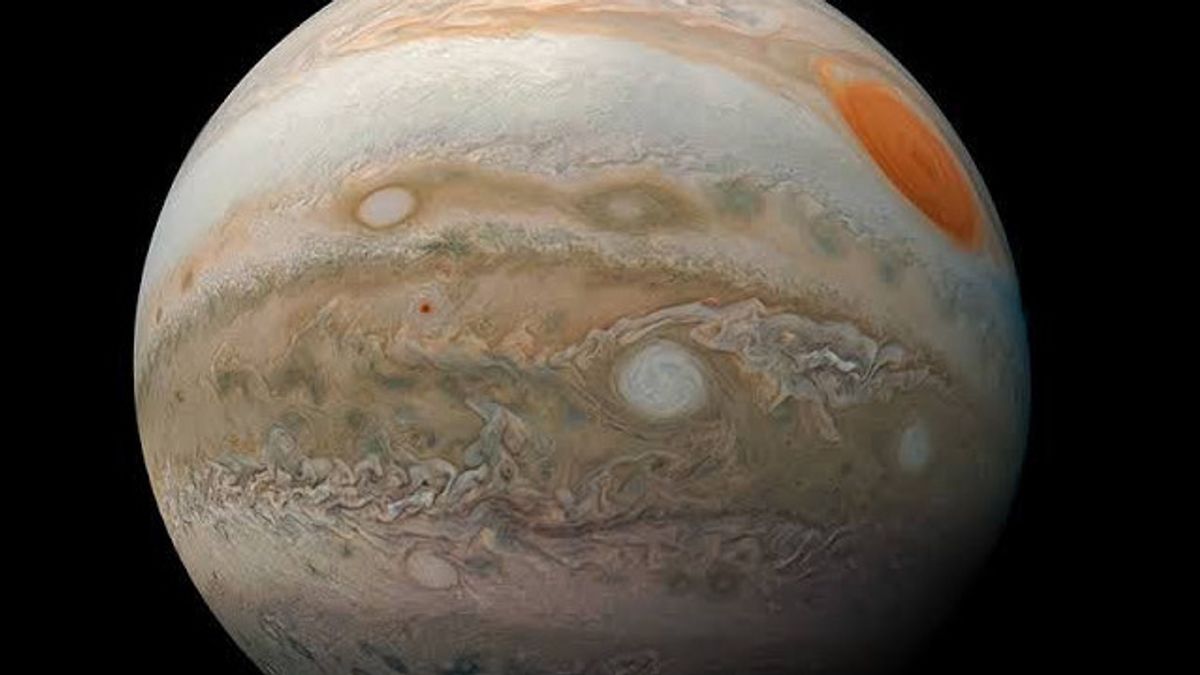JAKARTA - A new study shows Jupiter's orbital shift could make the earth's surface more habitable for life than it already exists today.
One of the California-Riverside University (UCR) scientists, Pam Vervoort, created an alternative Solar System. In this theoretical system, they find that if giant Jupiter's orbit becomes more eccentric, it will in turn lead to major changes in the form of Earth's orbit.
"If Jupiter's position remains the same, but its orbital shape changes, it can actually improve the habitability of the planet," Vervoort said.
Moreover, as Jupiter pushes Earth's orbit to become more eccentric, parts of the Earth will be closer to the Sun. Part of the earth's surface now below freezing point will become warmer, raising temperatures in a habitable range.
As a result, some of the coldest parts of Earth will heat up to temperatures in the habitable range, defined between 32 and 212 degrees Fahrenheit for various forms of life on Earth.
This result, now published in the Astronomical Journal, overturned two old scientific assumptions about the Solar System.
"Many believe that Earth is a habitable planet symbol and that any change in Jupiter's orbit, as a massive planet, will only have a negative impact on Earth. We point out that both assumptions are false," Vervoort explained.
Launching Space, Wednesday, September 14, in addition, scientists are also interested in implementing these findings to search for habitable planets around other stars, called exoplanets.
This is because the distance between a planet to its star and its variation determines how much radiation it receives from different parts creates a season.
Now, the search for habitability depends on whether a planet is in its star habitable zone, an area around a star that has the right temperature to allow the presence of liquid water. However, that result could introduce new search parameters.
"The first thing people are looking for in the search for exoplanets is a habitable zone, a distance between stars and planets to see if there is enough energy for liquid water on the planet's surface," said UCR astrophysicist Stephen Kane.
"Having water on its surface [is] the first very simple metric, and that doesn't take into account the shape of planetary orbits or seasonal variations the planet may experience."
Other factors that can also affect planetally habitability, and the team is also testing some of them, including the slope of a planet affecting how much radiation is received from its star.
The English, Chinese, Japanese, Arabic, and French versions are automatically generated by the AI. So there may still be inaccuracies in translating, please always see Indonesian as our main language. (system supported by DigitalSiber.id)













